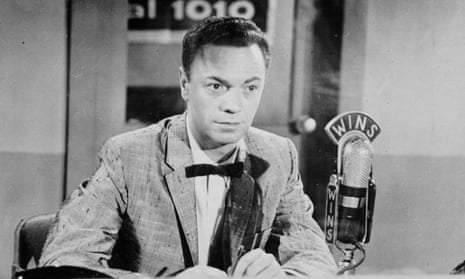The Rock and Roll Hall of Fame no longer wants Alan Freed’s cremated remains. The Cleveland attraction’s management have announced that they are dismantling an exhibit featuring the ashes of Freed, a DJ credited with popularising the term “rock’n’roll”.
“The museum world is moving away from exhibiting remains,” Greg Harris, the hall museum’s executive director explained to CNN. The problem is said to be that human remains don’t themselves “tell a story” – although Harris allegedly put it rather differently when he was talking to Lance Freed, Alan’s son. “[Harris] said, ‘Look Lance, there’s something strange [about this],’” Lance told the Cleveland Plain Dealer. “’People walk past the exhibit and your dad’s ashes and they scratch their heads and can’t figure out what this thing is, and we’d like you to come pick up the ashes.’”
The urn with Alan Freed’s ashes was to be picked up yesterday, CNN reported. Although the music icon passed away in 1965, his remains only became part of the museum in 2002. Freed’s own family suggested that they be placed on display: “We thought, ‘This is appropriate,’” Lance recalled. “My dad would have been happy and amused by this because he’s a public figure.”
Born in New York in 1921, Freed had his heyday as a DJ in the 1950s, playing R&B records which he called “rock’n’roll”. The Moondog Coronation Ball, staged at the Cleveland Arena in March 1952, is remembered as the first major rock’n’roll concert. In 1959 however, Freed was among the biggest names embroiled in the payola scandal; the US congress accused him of taking a co-composer credit on Chuck Berry’s song Maybellene, among others, in exchange for radio play. Freed died of complications from alcoholism aged 43.
According to Lance Freed, the hall is “pushing out” legacy figures like his father to make room for exhibits featuring new stars such as Beyoncé, whose costume exhibit opened in July. The family is now looking for a Cleveland cemetery that will serve as a “final resting place” for the DJ. “I want to make sure in his death he gets the respect he deserves because he didn’t in the last years of his life,” Lance said.
“We are conscious of [Alan Freed’s] important role and will continue to honour him,” Harris promised. “Rock and roll isn’t just about yesterday. It continues to evolve.”

Comments (…)
Sign in or create your Guardian account to join the discussion